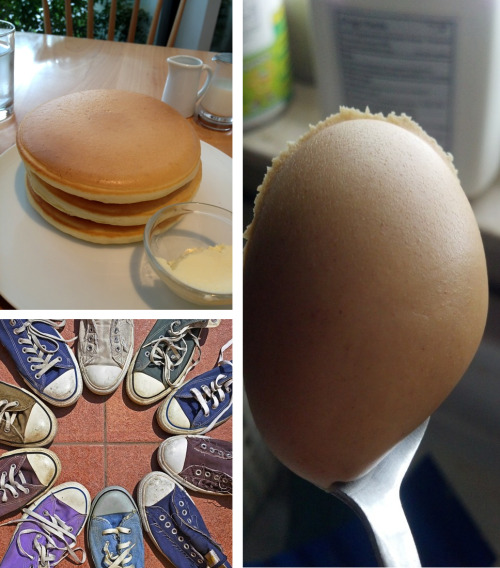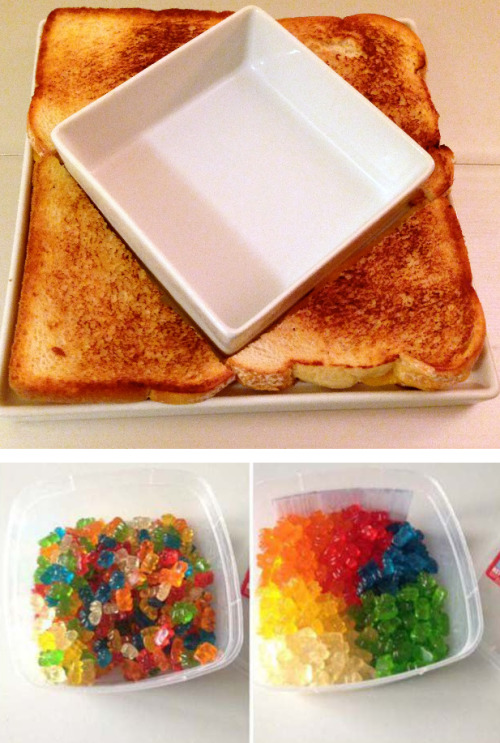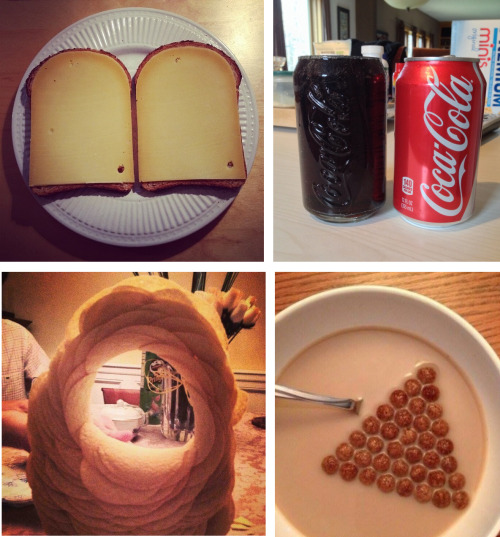There Was A Brief Period Of Time My Junior Year Of Undergrad When I Wanted To Be An Organic Chemist,
There was a brief period of time my junior year of undergrad when I wanted to be an organic chemist, so I took the graduate level organic synthesis class.
This wasn’t even the advanced ochem class, it was specifically synthesis for actual organic chemists, and it was just me and two other undergrads surrounded by first year grad students.
Anyways, the exams were these hellish two hour affairs which probably stand as the most difficult exams I’ve ever taken, and we all knew they were going to be bad going into the first midterm but not how bad.
So about forty minutes into the first two hour midterm one of the grad students gets up and turns in his test. The rest of us were like still on the first page so we were all kind of impressed that he was done already.
He leaves the room, and then from the hallway we hear him yell “fucking fuck,” and I think that was the purest expression of how midterms and finals feel that I have ever encountered.
More Posts from Secretagentpeptidebond and Others
I just knew that my inherent mistrust of AI would save me someday




This robot led people to their doom — and they still followed it
Researchers from Georgia Tech, backed by money from the Air Force, ran a test to see if people trying to escape from a high-rise building would trust a robot to lead them. Overwhelmingly, the sheeple followed the little droid to their simulated deaths. In the video, the researchers theorize why people obliged.
Follow @the-future-now
If there was a sitcom based on my lab it would be a comedy of errors and near catastrophe featuring the Lab Weirdo™, the Confused Undergrad™, the Done With This Shit Fifth Year™, the Fourth Year Who Is The Only Person Who Knows How The Instruments Work But Is Impossible To Find™, the Ever Present Third Year™, and the Exhausted Second Year™
It would be called “Don’t Quench the Magnet”




When Given Colored Construction Paper, Wasps Build Rainbow Colored Nests

Cuprite, Chrysocolla
Locality:
Clara Mine, Rankach valley, Oberwolfach, Wolfach, Black Forest, Baden-Württemberg, Germany
Cuprite is commonly found as an oxidation product of copper sulphides in the upper zones of veins, often associated with Native Copper, Malachite,Azurite, Limonite and Chalcocite. A fibrous form of Cuprite is known as Chalcotrichite
Photo: Michael Förch
On the care and keeping of your scientist
Congratulations on adopting a scientist! Regardless of their field they will require much coffee, free food, and love. Here are some field specific tips for keeping your scientist happy and healthy!
Biology: make sure they don't get overly invested in their model organism by reminding them about the flaws inherent in their system on a regular basis, but also make sure to join in when they criticize other models in favor of their own
Chemistry: don't let them do that 'just one more reaction' at 10 pm. make sure they get out of the lab and see the sun on a regular basis. try to keep them from partying too hard when they do leave the lab
Geology: humor their rock puns but don't let the lick the rocks (they will tell you they need to lick the rocks to identify them, but don't fall for it)
Astronomy: try not to let them become completely nocturnal. point out nice stars to them and look suitably impressed by their "pictures" of planets that don't look like anything to you
Physics: take them to the park on a regular basis to remind them that things larger than subatomic particles exist. bring a frisbee or a ball to play catch with and be impressed by their ability to calculate trajectories
Math: always make sure to have free batteries for their calculators and a mathmatica user guide on hand. Humor them when they tell you why space without angles is important
Ecology: make sure they remember to wear sunscreen and keep an eye on them in the field. Remind them to come inside and analyze their data occasionally
Psychology: don't mention Freud or ever call them a soft or social science, but make sure you gently remind them that social factors can impact reproducibility and try to keep them from drawing sweeping conclusions about the inherent nature of humanity
Neuroscience: be suitably impressed by their newest experiment and then remind them that people are not mice as often as possible
Computer Science: make sure they take breaks while debugging by limiting their supply of coffee. Nod and smile when they go off on indexing and arrays. Make sure they always have a rubber duck.
Make sure to keep your scientist away from engineers unless they have been properly socialized to interact in a translational household. The most important thing is to remember to hug your scientist on a regular basis and remind them that there is life outside the lab
Learn Everything You Need To Know About Chemicals In Your Food in 4 Easy Steps!
Step One
Obtain High School level Chemistry textbook.

Step Two
Open the book to chapter one, section one.

Step Three
Locate and identify the goals of chapter one: basic definition of chemistry.

Step Four
Discover that EVERYTHING IS MADE OF CHEMICALS.

Whew. That was pretty scary, wasn’t it? Education is hard. Learning about scary chemicals is a big adventure. But aren’t you glad you pulled through? I’m glad we had this talk.
-
 toasttoaloner reblogged this · 9 years ago
toasttoaloner reblogged this · 9 years ago -
 toasttoaloner liked this · 9 years ago
toasttoaloner liked this · 9 years ago -
 duchessedecalifornia reblogged this · 9 years ago
duchessedecalifornia reblogged this · 9 years ago -
 betaoctillery liked this · 9 years ago
betaoctillery liked this · 9 years ago -
 super-space-time reblogged this · 9 years ago
super-space-time reblogged this · 9 years ago -
 theboneherald liked this · 9 years ago
theboneherald liked this · 9 years ago -
 khrysdiebee liked this · 9 years ago
khrysdiebee liked this · 9 years ago -
 thattrashdad reblogged this · 9 years ago
thattrashdad reblogged this · 9 years ago -
 -reamsofdreams liked this · 9 years ago
-reamsofdreams liked this · 9 years ago -
 pourqua reblogged this · 9 years ago
pourqua reblogged this · 9 years ago -
 callstheadventurescience reblogged this · 9 years ago
callstheadventurescience reblogged this · 9 years ago -
 w4it-for-summertime reblogged this · 9 years ago
w4it-for-summertime reblogged this · 9 years ago -
 ultrainfinitequest liked this · 9 years ago
ultrainfinitequest liked this · 9 years ago -
 secretagentpeptidebond reblogged this · 9 years ago
secretagentpeptidebond reblogged this · 9 years ago -
 like-a-kaleidoscope-of-memories reblogged this · 9 years ago
like-a-kaleidoscope-of-memories reblogged this · 9 years ago -
 onlyobeythedaleks reblogged this · 9 years ago
onlyobeythedaleks reblogged this · 9 years ago -
 katsuokai liked this · 9 years ago
katsuokai liked this · 9 years ago -
 frodo-sam liked this · 9 years ago
frodo-sam liked this · 9 years ago -
 acaxic-blog liked this · 9 years ago
acaxic-blog liked this · 9 years ago -
 smashstork-blog reblogged this · 9 years ago
smashstork-blog reblogged this · 9 years ago -
 masterofpinwheels reblogged this · 9 years ago
masterofpinwheels reblogged this · 9 years ago -
 tryingtolive4god reblogged this · 9 years ago
tryingtolive4god reblogged this · 9 years ago -
 alendis reblogged this · 9 years ago
alendis reblogged this · 9 years ago -
 josiegem liked this · 9 years ago
josiegem liked this · 9 years ago -
 letsstirruptrouble liked this · 9 years ago
letsstirruptrouble liked this · 9 years ago -
 ditchedacount liked this · 9 years ago
ditchedacount liked this · 9 years ago -
 puffballpotato reblogged this · 9 years ago
puffballpotato reblogged this · 9 years ago -
 lament-of-ajna liked this · 9 years ago
lament-of-ajna liked this · 9 years ago -
 luckykairivt reblogged this · 9 years ago
luckykairivt reblogged this · 9 years ago -
 dismightyman reblogged this · 9 years ago
dismightyman reblogged this · 9 years ago -
 dismightyman liked this · 9 years ago
dismightyman liked this · 9 years ago -
 lazytumbls liked this · 9 years ago
lazytumbls liked this · 9 years ago -
 myohmycassiee-blog1 liked this · 9 years ago
myohmycassiee-blog1 liked this · 9 years ago -
 myohmycassiee-blog1 reblogged this · 9 years ago
myohmycassiee-blog1 reblogged this · 9 years ago -
 kleinundasinine reblogged this · 9 years ago
kleinundasinine reblogged this · 9 years ago -
 enteringhysteria liked this · 9 years ago
enteringhysteria liked this · 9 years ago -
 enteringhysteria reblogged this · 9 years ago
enteringhysteria reblogged this · 9 years ago -
 angel-flowers liked this · 9 years ago
angel-flowers liked this · 9 years ago -
 gudegudeguro liked this · 9 years ago
gudegudeguro liked this · 9 years ago -
 autfutue-autpugnemus reblogged this · 9 years ago
autfutue-autpugnemus reblogged this · 9 years ago -
 wickedeluxe reblogged this · 9 years ago
wickedeluxe reblogged this · 9 years ago




















